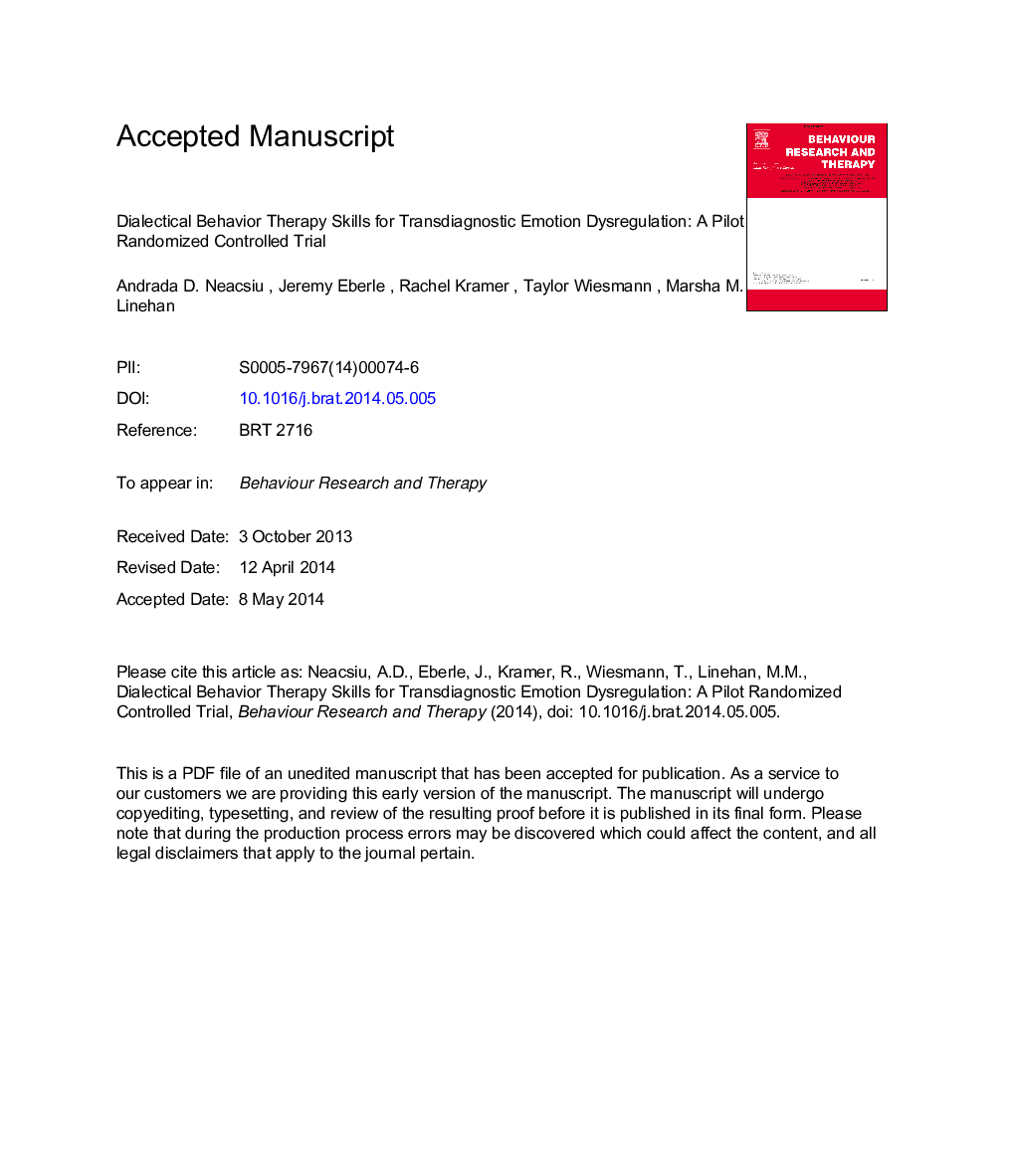| Article ID | Journal | Published Year | Pages | File Type |
|---|---|---|---|---|
| 7262653 | Behaviour Research and Therapy | 2014 | 49 Pages |
Abstract
Difficulties with emotions are common across mood and anxiety disorders. Dialectical behavior therapy skills training (DBT-ST) reduces emotion dysregulation in borderline personality disorder (BPD). Preliminary evidence suggests that use of DBT skills mediates changes seen in BPD treatments. Therefore, we assessed DBT-ST as a stand-alone, transdiagnostic treatment for emotion dysregulation and DBT skills use as a mediator of outcome. Forty-four anxious and/or depressed, non-BPD adults with high emotion dysregulation were randomized to 16 weeks of either DBT-ST or an activities-based support group (ASG). Participants completed measures of emotion dysregulation, DBT skills use, and psychopathology every 2 months through 2 months posttreatment. Longitudinal analyses indicated that DBT-ST was superior to ASG in decreasing emotion dysregulation (d = 1.86), increasing skills use (d = 1.02), and decreasing anxiety (d = 1.37) but not depression (d = 0.73). Skills use mediated these differential changes. Participants found DBT-ST acceptable. Thirty-two percent of DBT-ST and 59% of ASG participants dropped treatment. Fifty-nine percent of DBT-ST and 50% of ASG participants complied with the research protocol of avoiding ancillary psychotherapy and/or medication changes. In summary, DBT-ST is a promising treatment for emotion dysregulation for depressed and anxious transdiagnostic adults, although more assessment of feasibility is needed.
Related Topics
Health Sciences
Medicine and Dentistry
Psychiatry and Mental Health
Authors
Andrada D. Neacsiu, Jeremy W. Eberle, Rachel Kramer, Taylor Wiesmann, Marsha M. Linehan,
